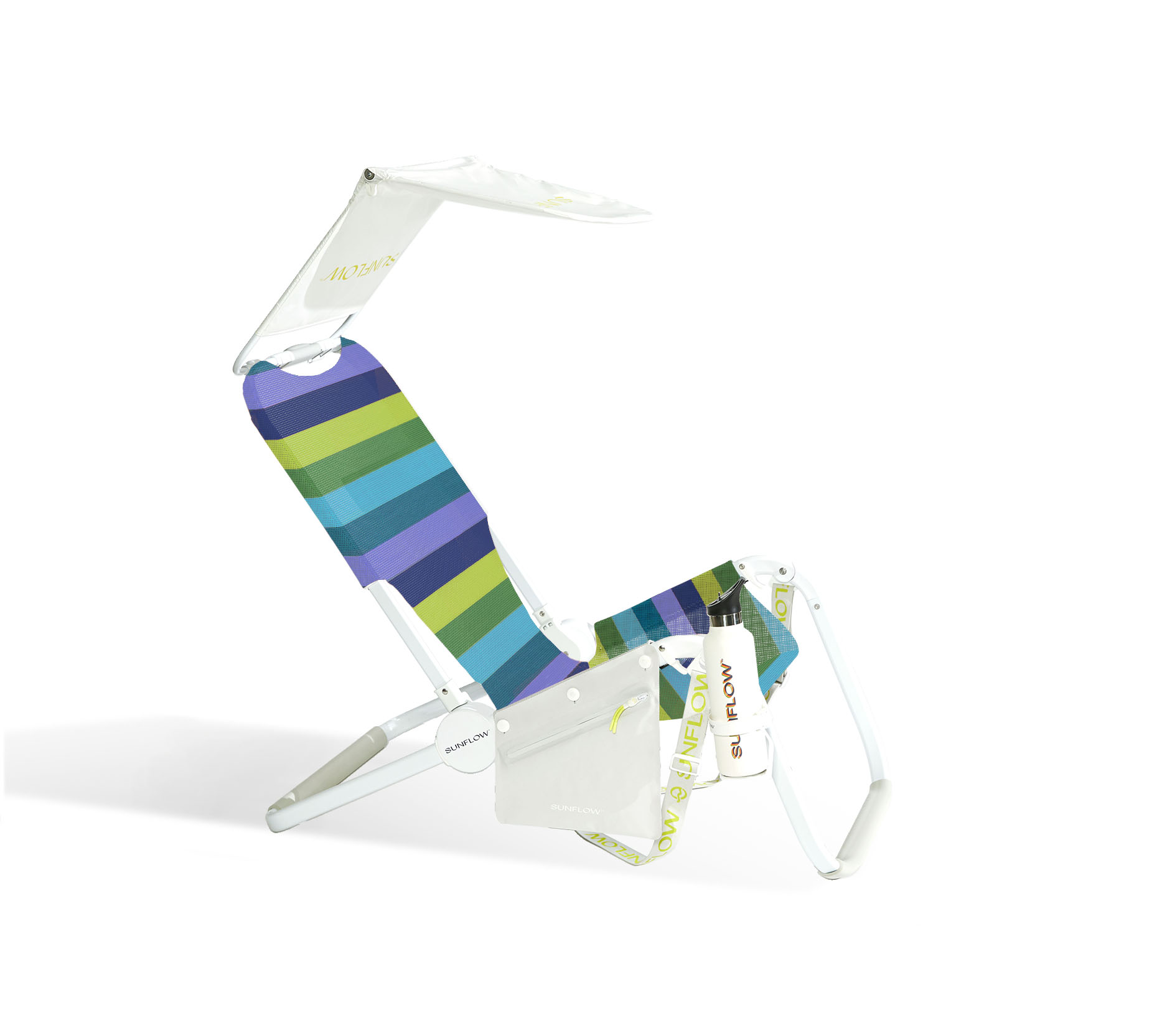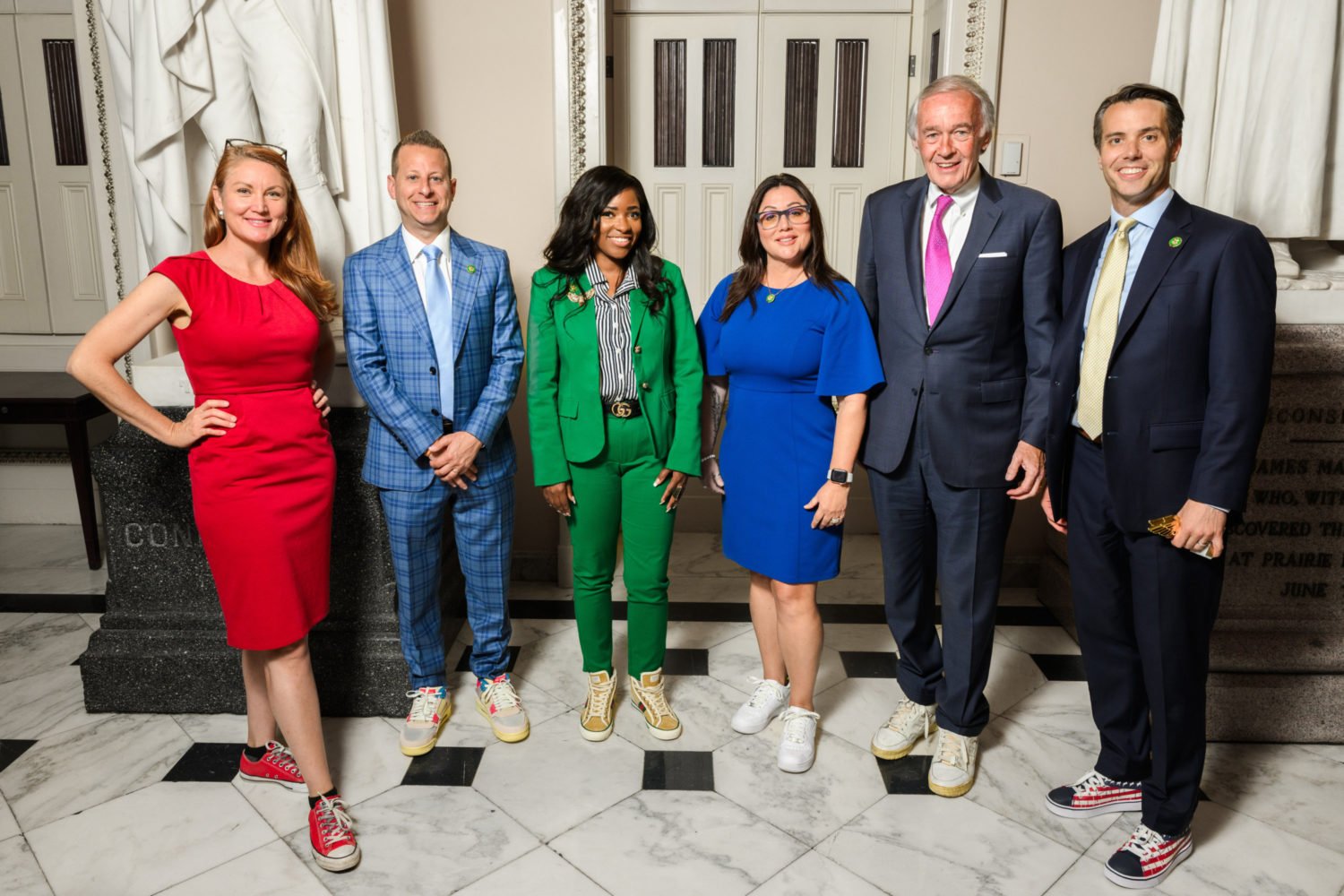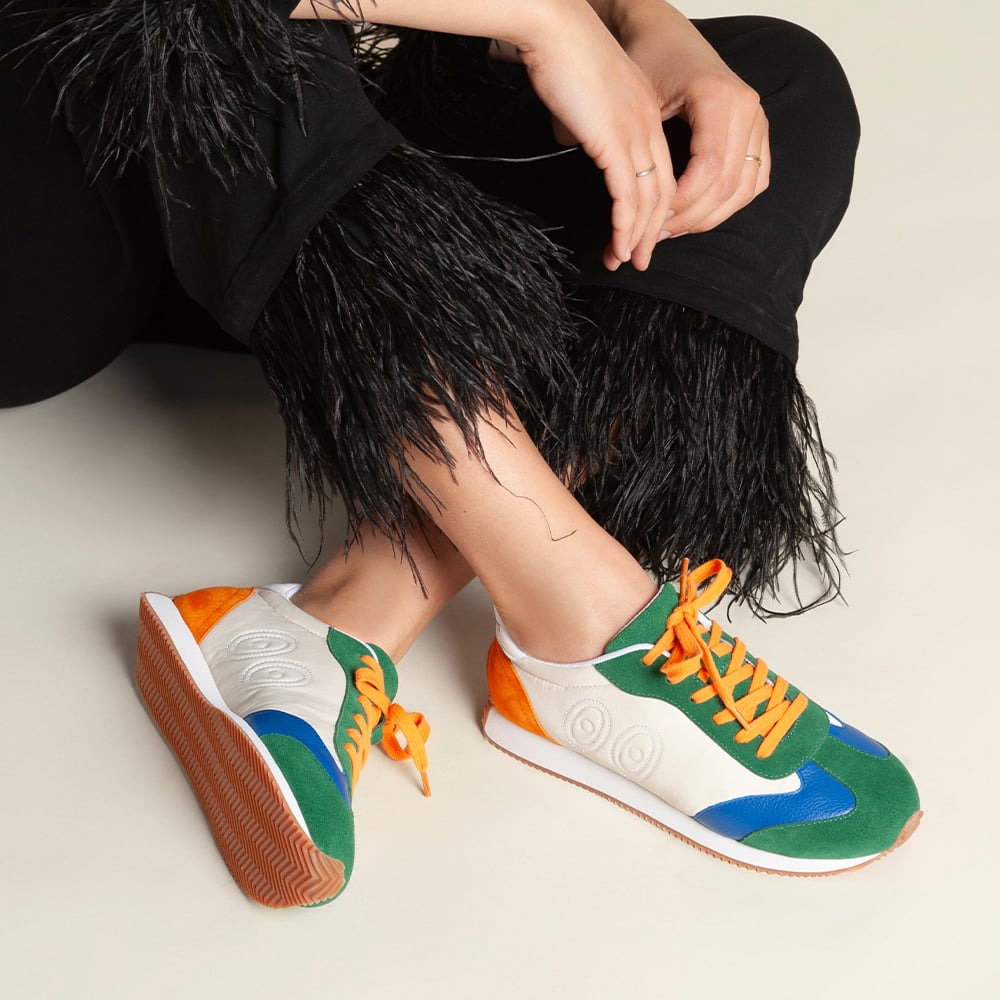It’s beach season, and whether you’re heading to the shore for a weekend or to your vacation home for a longer stay (or, our personal favorite, a weekend at a friend’s beach house), there’s a posh new product that will let others know you’ve arrived. Designer swimwear, expensive coolers, chic umbrellas—these pale in comparison with the $300 beach chair by Sunflow.
In addition to netting $1 million on Shark Tank this spring, Sunflow, a New Jersey brand whose cofounder graduated from Walt Whitman High School in Bethesda, launched pop-ups in such see-and-be-seen spots as East Hampton and West Palm Beach. Also strategic: Sunflow partnered with the Sports Illustrated swimsuit issue and posted a slew of Instagram photos with swimsuit models, as well as celebrities such as football star Rob Gronkowski. The reviews for the chair itself—though we can’t imagine that people shelling out $300 for a beach chair at an East Hampton pop-up are Googling first—are glowing. They’d have to be, considering that you can buy a top-rated Tommy Bahama chair on Amazon for about $100, a relative bargain.
What do you get for three bills? The chic white rust-resistant aluminum frame is said to be extremely easy to carry, set up, and break down. (Other luxe beach chairs usually have bulkier, heavier wooden frames.) Though you can buy the bare-bones version of the chair for $198, you’ll want the extras that come with the $296 “bundle” (after all, you don’t land a deal with Shark Tank’s Kevin O’Leary with a basic beach chair): a UPF 50+ sun shade, an adjustable drink holder, a dry bag, and a towel that attaches to the chair. One thing previously missing—and oh, did reviewers let Sunflow know it—was a pillow. But ask (and pay $35 for it) and ye shall receive: The brand is adding a pillow to its list of accessories. Also appealing: Because there are more than two dozen color/print options to choose from, you can pick the aesthetic that speaks to you and have the “it” thing without having the exact same thing as the next group of posh beachgoers over.
This article appears in the July 2022 issue of Washingtonian.














